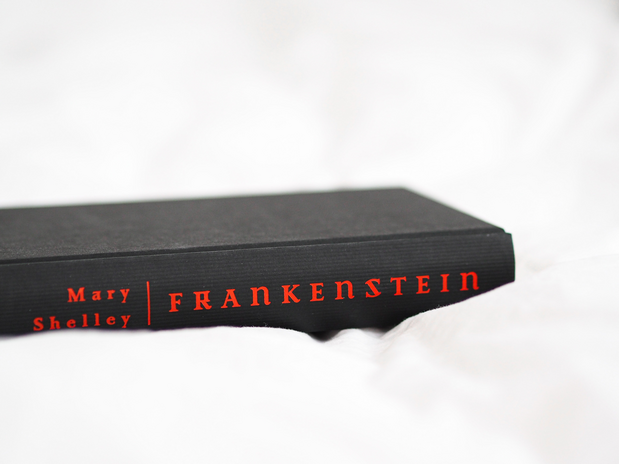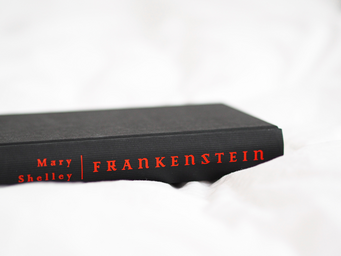Mary Shelley, author of Frankenstein, was the goth queen we all aspire to be. Halloween is incomplete without her and she carries anything under the adjective “spooky” on her back from the grave. Shelley lost her virginity on her mother’s grave to a married man, Percy Shelley, causing his wife to unalive herself and leave Percy a free man for Shelley’s taking. When he died, she kept his heart, preserved by calcification. She deserves a trophy.
So, even without factoring in Frankenstein, Shelley was just a spooky individual in general. Here, we add Frankenstein to the mix. The novel is best and most easily described as horrific. It’s horrific that she conceived and birthed this story at the young age of eighteen, but it’s also just horrific in general. For those of you who are new to the Shelley-verse, Frankenstein details the story of a mad scientist, Victor Frankenstein, and the reanimated patchwork corpse that seeks revenge.
According to monster theory taught in Professor Michael Chemers’ Monsters course, monsters either originate from or eventually, through pop culture representations, embody fear. One might guess that Shelley’s fascination with death was the fear which fueled Frankenstein. Or, she was afraid of the dead rising from their graves and haunting her. Instead, I think that Frankenstein originates from and embodies the fear of loneliness, more specifically being left behind by death.
Victor, while grave-robbing, stitching together parts, and reanimating the dead creation, completely isolates himself from his support system. He stops responding to letters from home, drops out of school, and spends every waking moment beside dead, stolen body parts. He’s completely alone by his own making which additionally is what drives him mad.
Once the Creature is born, he’s also alone. He’s one of a kind, no other being is like him. Victor created the monster out of selfishness and ego, completely forgetting the part where the Creature must exist. Upon Victor’s shock at the ugly crudeness of his monster, the Creature abandons him and leaps into the darkness.
The Creature learns to speak by observing a family and becomes a sophisticated being with perfect grammar and eloquent phrasing. He learns human family dynamics as well, a complete blank slate which absorbs any and everything around it. He, however, begins to long for connection which would rid him of loneliness.
There are deaths and things that I’m not in the mood to spoil—some details should stay a surprise for when you *hopefully* read the novel on your own—but the important detail is that Victor’s support system, the same one he had isolated himself from earlier on, no longer exists due to actions of the Creature in revenge. See, the Creature felt a loneliness so consuming that he asked Victor to make him a companion. If Victor did this, the Creature would leave and never bother him again. Basically, the Creature wanted a wife to go off the grid with and live a cottagecore life.
See what I mean? Yes, both characters are monstrous in their own rights, but the driving force in their monsterness is their aloneness. They are both products of their respective environments which are empty. Void of comfort and connection.
It makes sense when calling back to Mary Shelley’s life, as well. Her mother died when she was only three months old. It is easy to assume that loneliness and seeking connection with her mother was the reason for having secret meet ups with her future husband there. As for keeping her husband’s calcified heart, that is even more painfully obvious proof that death made Shelley feel alone.
Usually discourse around Frankenstein argues that Victor was the real monster of the novel, not the Creature, but I think they are both monsters. It isn’t their fault, though. It’s bleak, barren deserts of loneliness that fuel the plot and the monstrousness of our characters. Our spookiest story that resurfaces every October, a scary staple, is a lament of loneliness.
As a social species it makes sense that this underlying thread of loneliness would tie our culture so tightly to Frankenstein. Loneliness could just be the scariest thing we can think of.


